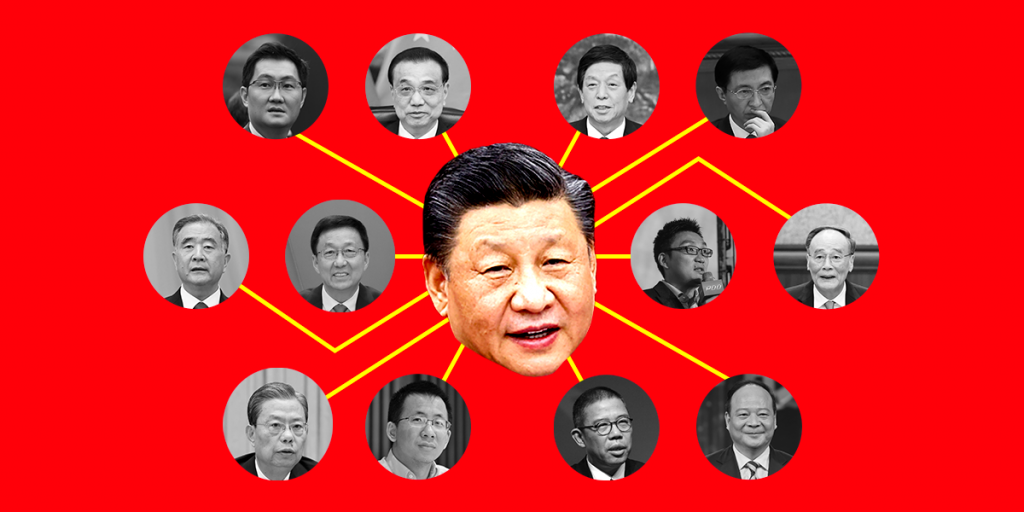In the chess game of Chinese politics, it's not always clear who pulls the strings. Here are the 12 most influential people who hold the fate — and might — of a country of 1.4 billion people in their hands.
You may not have heard the name Li Keqiang before — but you likely soon will.
That's because when the Chinese premier steps down from power in March 2023, a decision he confirmed in March, it will trigger a significant reshuffle in the upper echelons of the Chinese government. In a country where the succession of power has happened both slowly and deliberately, Li's retirement could kick off a fundamental shift in roles among China's most powerful government body — the Politburo Standing Committee — and lead to further consolidation of power under Chinese leader Xi Jinping.
The nexus of China's elite is often obscured by what appears to be the overwhelming control and centralization of power in Xi's hands. Having removed constitutional term limits on his role, Xi has positioned himself as the most powerful leader since Mao Zedong. He may now rule for life and continue regulating the country of 1.4 billion people with a tight grip on military reform, cybersecurity, and internet censorship.
Xi, the 68-year-old twice-married supreme leader, served as General Secretary of the Chinese Communist Party and Chair of the Central Military Commission before becoming president in 2013. Xi is among China's famed "princelings" — the descendants of prominent Communist Party officials who represent a powerful government faction.
But while his princeling status — being the son of revolutionary Communist veteran Xi Zhongxun — may have helped get him to power, Xi has maintained his leadership role only by closely monitoring his inner circle and regularly shaking up the status quo.
That tendency has proven dangerous for lifelong Chinese bureaucrats who get too comfortable in the bosom of the autocracy. Take former security chief Zhou Yongkang, prominent politician Bo Xilai, and Chongqing communist party chief Sun Zhengcai, for instance, all of whom were purged from the upper ranks of the Party during Xi's reign.
China's impenetrable black box of power
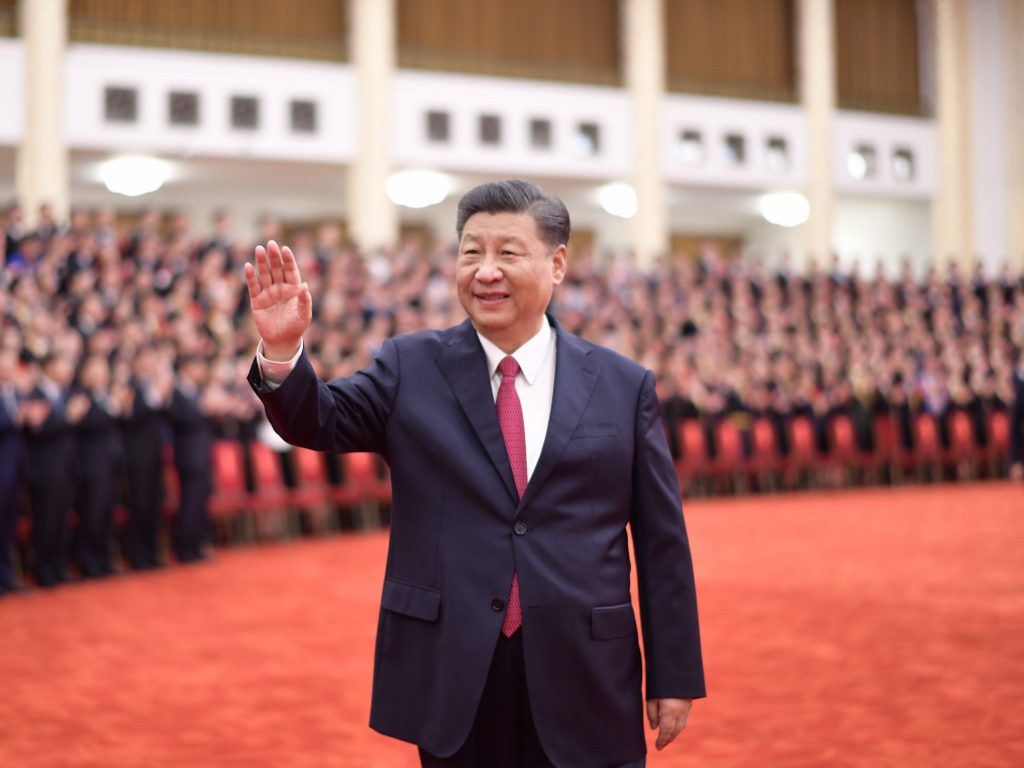
Given the heavy censorship and control over state-linked media outlets in the country — it's nearly impossible to know what's really happening in China's halls of power.
Observers have intently watched China's displays of strength at its military parades; looked into the tea leaves to predict China's line of succession post-Xi; and scrutinized seating charts to suss out government officials' proximity to the pinnacle of power.
"What people really think is opaque beneath the chess game that they play. And the chess game itself goes on inside a highly impenetrable black box," Perry Link, an emeritus professor of East Asian studies at Princeton University, told CNN.
Experts told Insider the Politburo — the highest decision-making body of the Chinese Communist Party — and its top members are the ones who are really in control in the country, despite the clout that high-profile Chinese billionaires seem to hold.
"The government campaigns over the last year — whether focused on celebrities or education tutoring companies — demonstrate the Chinese Party-state is the final arbiter of power. Companies or individuals who seemingly rise too high and supersede the power and/or authority of the Party-state will be subjected to some form of punishment," Jennifer Hsu, a researcher of public opinion and foreign policy at the Lowy Institute, told Insider.
Perhaps no one knows that better than Jack Ma.
Ma, the founder of e-commerce and tech company Alibaba, enjoyed a charmed life of high-profile appearances and an overflowing bank account — Ma was reportedly worth $62 billion in 2020 at the height of his power, making him the richest man in China.
But in October 2020, he criticized China's financial regulatory system, suggesting that Chinese banks were crawling along behind the times, continuing to follow global rules that are part of "an old people's club."
Then Ma disappeared.
Some believed he'd been spirited away by the Chinese government to a detention camp. Others assumed he was deliberately lying low.
When Ma finally surfaced — much-chastened — in early 2021. China had opened an antitrust investigation into Alibaba and shut down Ma's plans for an Ant Group IPO. It was a potent reminder that while it's possible to reap huge financial rewards as a business leader in China, the CCP still wields the ultimate power.
"Of course, they have huge resources and 'soft power' that comes from being admired as business executives. But in the end, the Party can influence them to do what they want — it doesn't really work the other way round," Rana Mitter, a professor of history and modern Chinese politics at Oxford, told Insider.
We took a peek into Xi's inner circle and narrowed down the list of the top 12 most influential people surrounding Xi Jinping. We spoke to experts who told us more about the inner workings of the Communist Party, what true power means in China, and who wields it.
Xi's inner circle — the Politburo Standing Committee and his vice president, Wang Qishan — call all the shots
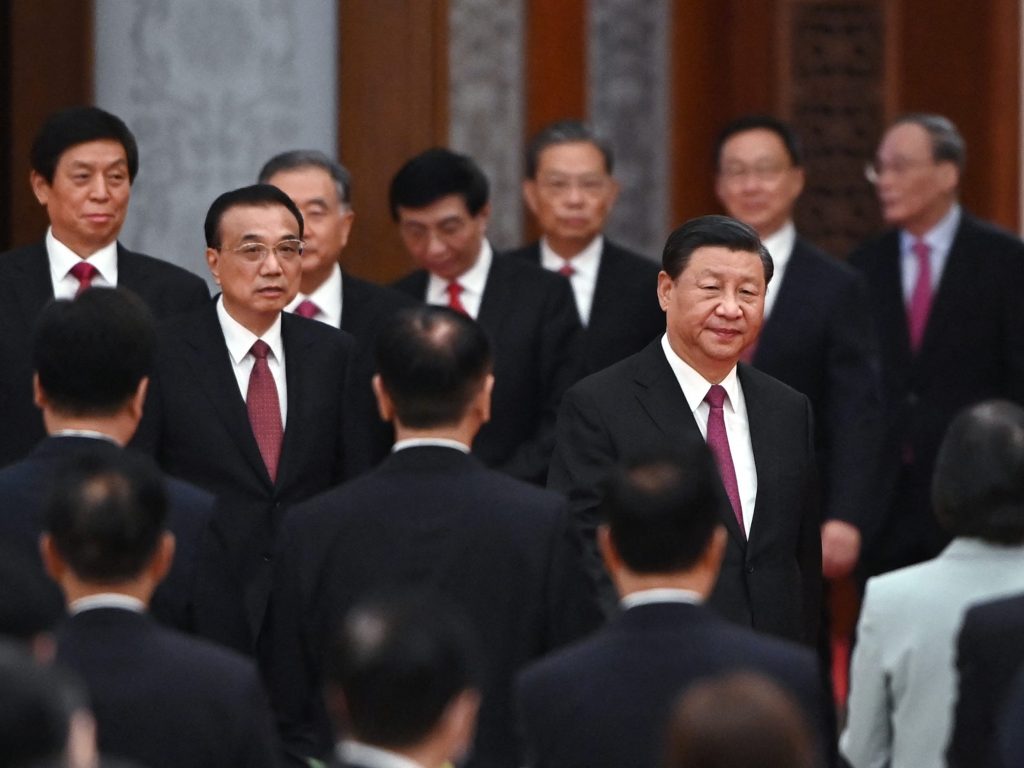
The CCP formed the first Politburo Standing Committee in July 1928. It comprised the top members of the Chinese government — including the future Chairman Mao, who became the Chinese leader in 1949. The contemporary Politburo is now thought to be handpicked by outgoing Standing Committee members in consultation with retired top leaders and previous standing committee members.
The Communist Party's central committee holds closed-door meetings to choose its 25-member Politburo — and within that number is the exclusive Politburo Standing Committee. It comprises Xi and six others who meet and operate largely in secrecy.
The latest reshuffle of the Politburo Standing Committee occurred in 2017 when five new members— Li Zhanshu, Wang Yang, Wang Huning, Zhao Leji, and Han Zheng — were promoted to the committee. But given that these men are all 65 and older and either close to or long past the retirement age of 67, there appears to be no clear succession plan for Xi, who has all but paved the way to break with tradition and grant himself a third term.
Xi is also flanked by his vice president, Wang Qishan, who has known the premier since the two were teens. While Wang is not part of the PSC, he also wields a fair amount of power due to his proximity to Xi.
Whether there will be further changes to the political landscape, and whether Xi will elect more members of allegiant factions, will be decided in the fall of 2022, when the 20th Party Congress commences.
In the meantime, political power under Xi remains consolidated among the following men:
Wang Qishan serves as vice president under Xi and is considered one of China's most potent 'princelings'
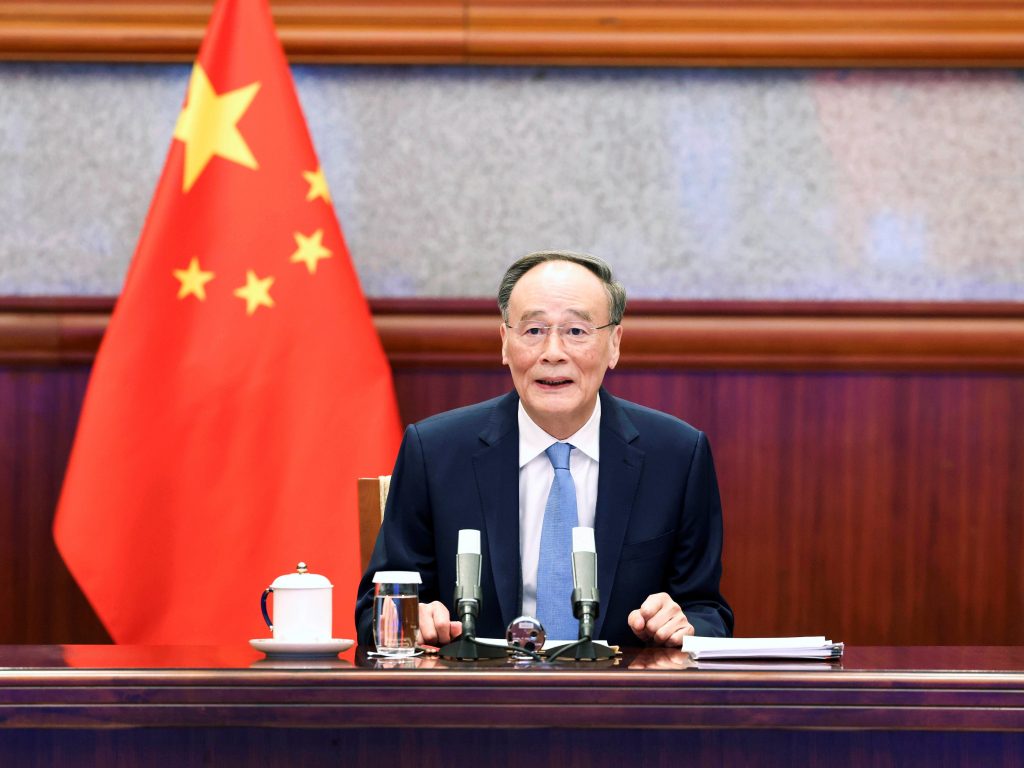
China's Vice President Wang Qishan, 73, is Xi's right-hand man. Before Xi came to power, Wang was known as a princeling politician by marriage, rising in prominence in the CCP partly because of his marriage to the daughter of former executive vice-premier Yao Yilin.
Ties to Xi: The son of an engineering professor, Wang met and befriended the then 15-year-old Xi when the pair were assigned manual labor roles in a farming community near Yan'an, Shaanxi province, during the Cultural Revolution. Wang later joined the CCP in 1983 and rose to become a ranking member of the Politburo in 2007, helping to front China's trade talks with the US.
Wang also helped helm Xi's pet project, an anti-corruption purge of tens of thousands of prominent Chinese officials that kicked off in 2013. Wang, a long-standing ally of Xi's, reportedly helped the Chinese leader purge their rivals, using the anti-corruption campaign as a tool.
Perhaps unsurprisingly, Wang is a big fan of the Netflix series "House of Cards."
Victor Shih, an expert in China and Pacific relations and associate professor of political science at the University of California San Diego School of Global Policy and Strategy, told Insider he thinks there might be a power shift where Wang is concerned after the fall of 2022.
"Wang likely will fully retire, as will many of the technocrats he nurtured in the past," Shih said. "With his own full retirement, as well as the retirement of his followers, Wang's influence will also be much diminished."
Li Keqiang was once expected to be the successor to former President Hu Jintao but was sidelined in favor of Xi
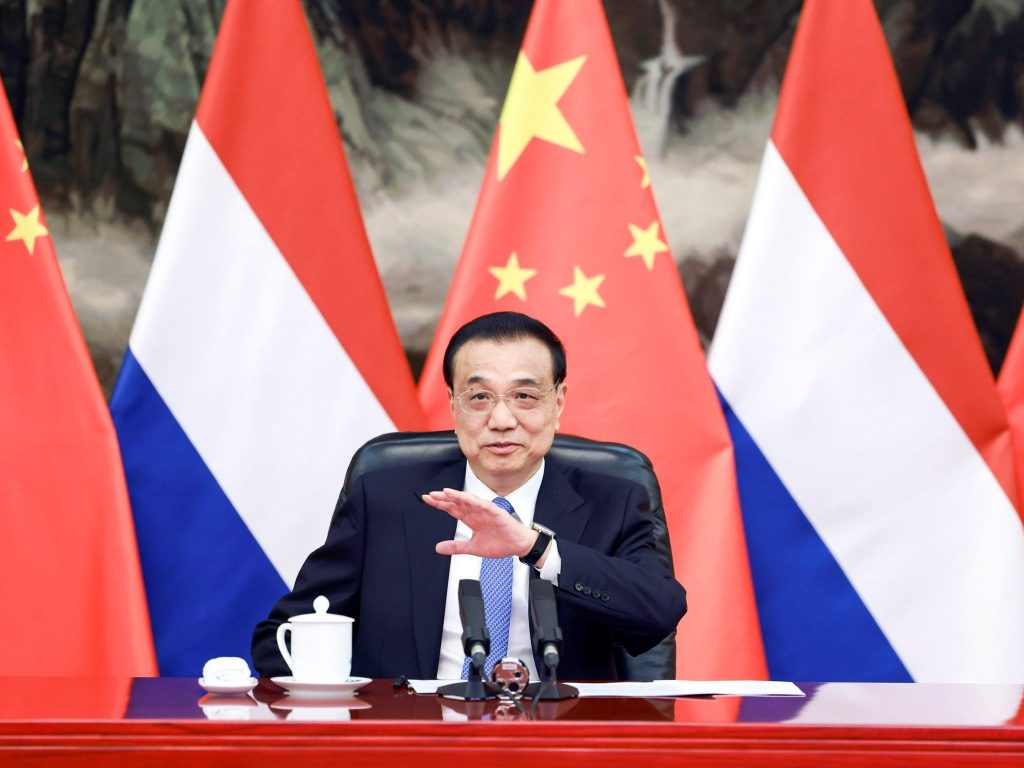
Li, 66, is currently the premier of the People's Republic of China and the Party secretary of the State Council of the People's Republic of China.
Li's humble beginnings in Anhui, eastern China, and his career in China's Communist Youth League, helped him climb the Party's ranks. During his tenure, he focused primarily on managing China's economy, which led to the country's economic performance rating system being dubbed the "Keqiang Index." Li has managed several important portfolios — he handled aspects of the Chinese economy and infrastructural growth, and was charged with drafting China's response to the COVID-19 pandemic.
Ties to Xi: Li is a known ally of Xi's predecessor, former President Hu Jintao, and his closeness to Hu led some to speculate that he was being groomed to succeed Hu. But after much hype, Li was sidelined for the top job in favor of Xi. Li was named premier in 2013, but Xi's decision to expand his control of the economy encroached on Li's turf, weakening Li's power to some extent. Li also saw his influence erode after China's 2015 stock market meltdown, for which he was blamed.
"Li Keqiang has been a weak premier, mostly because Xi Jinping has relied on Liu He and the Central Commission for the Comprehensive Deepening of Reform, which Xi heads," said Joseph Fewsmith, professor of international relations and political science and director of the Boston University Center for the Study of Asia.
"I would expect Li to exercise little influence after his retirement. The interesting question is who will replace him as premier," Fewsmith added, noting that Hu Chunhua, a prominent Politburo politician, might be next in line.
Li Zhanshu was relegated to far-flung posts in rural China before staking his claim in the Politburo
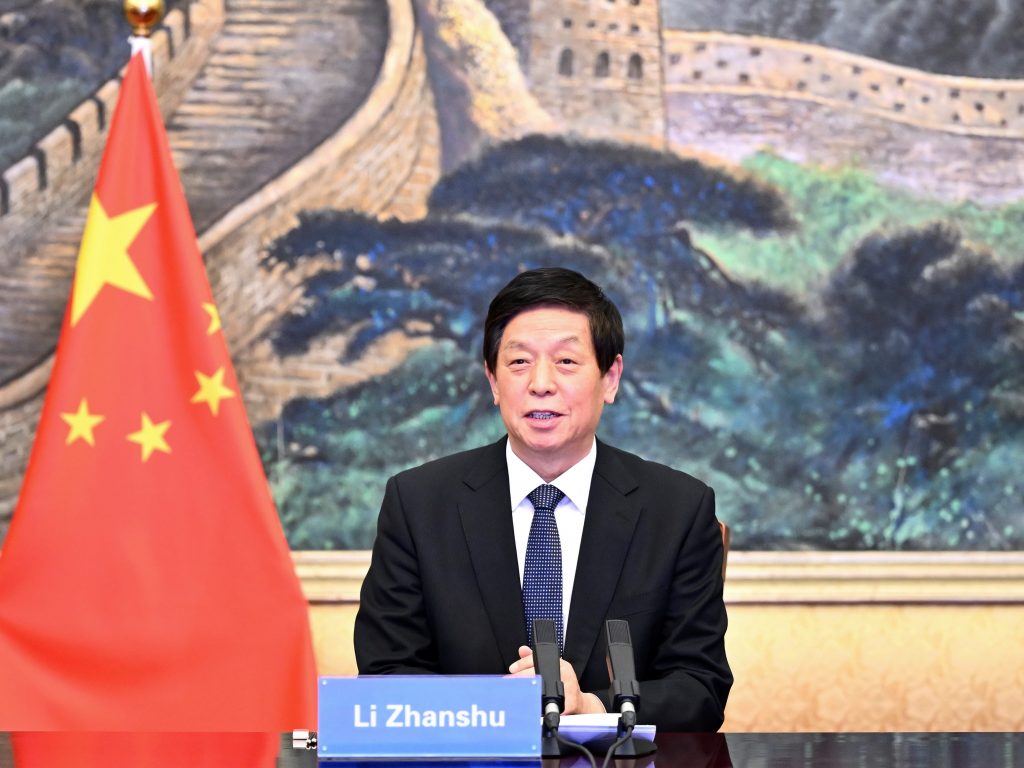
Li, 71, is a ranking member of the Politburo Standing Committee and the current chairman of the standing committee of China's National People's Congress. He's considered the third most powerful man in China.
Li saw a minor setback in his climb to the top when in 2003, he was sent off to Heilongjiang, a far-north province, and put in charge of revitalizing China's "rust belt." He composed a poem about the experience:
"A real man has no fear of dangerous tasks,
Mountains are rich in beauty and peaks are ever breathtaking.
The mighty autumn wind only bullies the weak,
Still the falcon spreads its wings and soars toward heaven."
As governor of Heilongjiang, Li revitalized the province's irrigation project and boosted its agricultural output. But this did little to elevate Li's status. In 2010, he was sent to Guizhou, China's poorest province, and was tasked with improving the province's infrastructure and economy.
It wasn't until 2012 that fortune finally smiled upon Li. Having bided his time for close to a decade, Xi — an old friend of Li's — promoted him to the general office of the Chinese Communist Party, a role equivalent to the "gatekeeper" or Chief of Staff in Xi's government.
He is known to abide by three "nos" — no messing around with people, no playing games, and no slacking off on the job.
Ties to Xi: Li is thought to be one of the senior members of Xi's personal "clique." Li's ties to Xi go back to the 1980s during their early days in the CCP, when Li served as party secretary one county over from Zhengding County, where Xi was CCP chief.
Fewsmith, the Boston University professor, said Li Zhanshu and his colleague, Zhao Leji, were "already very prominent" in the Standing Committee.
However, Shih believes that if Xi were to abide by the old rules that committee members must retire at 67, and not make an exception for Li and Zhao, they both might have to step down.
"However, these two have managed to cultivate and promote sizable networks in the upper echelons of the party, so they will have considerable post-retirement influence," Shih said.
Wang Yang has a reputation as a 'reformer' and an advocate of the free market
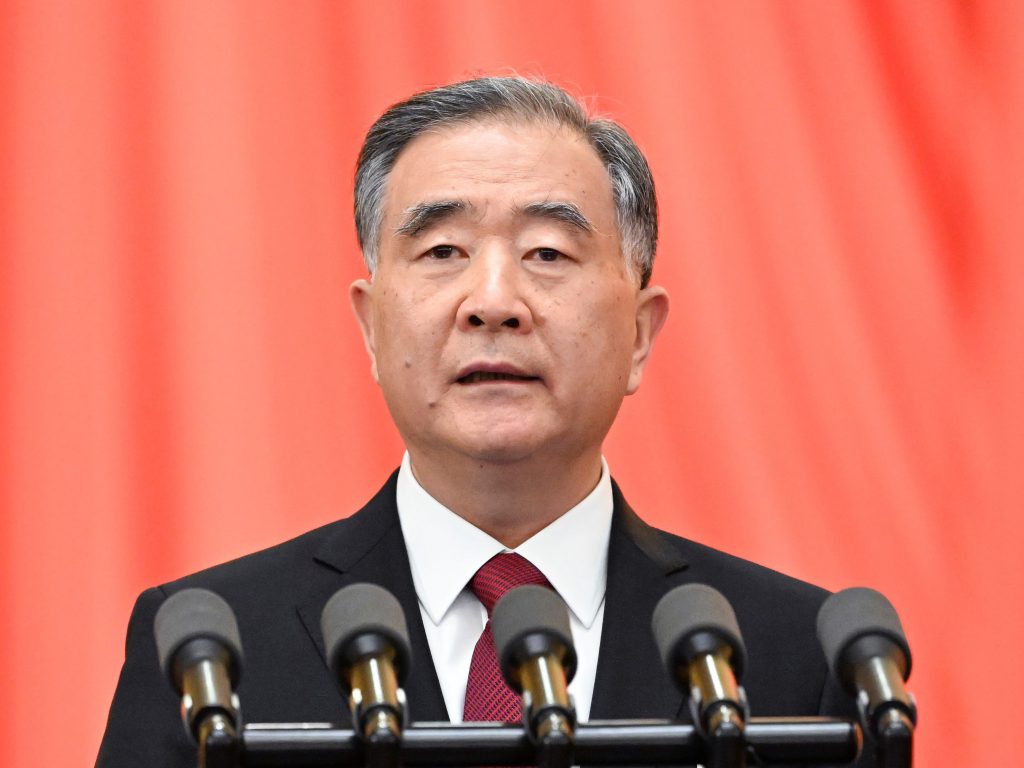
Wang, 67, is a member of the Politburo standing committee and the Party secretary of the Chinese People's Political Consultative Conference.
Wang spent his early years involved in politics in his hometown of Anhui, climbing up through the lower ranks of local government to eventually become the party committee secretary of Chongqing. Wang is also one of the known liberals and "reformers" in the CCP, advocating for free markets and governing with a softer, ground-up approach.
"There's no particularly helpful way to rank (the members of the Politburo Standing Committee), but it's worth noting that Wang Yang is being tipped as a possible premier, which is intriguing as he has encouraged freer markets in the past as a provincial party secretary, and that Wang Huning is widely regarded as the ideological thinker who has influenced Xi the most," Mitter, the Oxford professor, said.
Ties to Xi: Wang criticized the rise of "princeling" power in the early 2010s. That made him an unpopular choice for a seat on the Politburo Standing Committee back in 2012 when Hu Jintao was in control. But he was later elected to the 19th Politburo Standing Committee in 2017 and, in 2018, began spearheading the Chinese government's policies in the highly contested Uyghur Autonomous Region of Xinjiang.
Like Li Keqiang, Wang is thought to be within the Hu faction, with Li Zhanshu and Zhao Leji being part of the Xi clique. According to think tank Brookings, being part of the Hu faction, backed by former President Hu Jintao and Premier Wen Jiabao, meant being part of a "populist coalition." This was as opposed to being part of Xi's "elite coalition," currently the most powerful government faction.
Wang Huning, described as a workaholic and insomniac, is considered the mastermind behind Xi's massive Belt and Road initiative
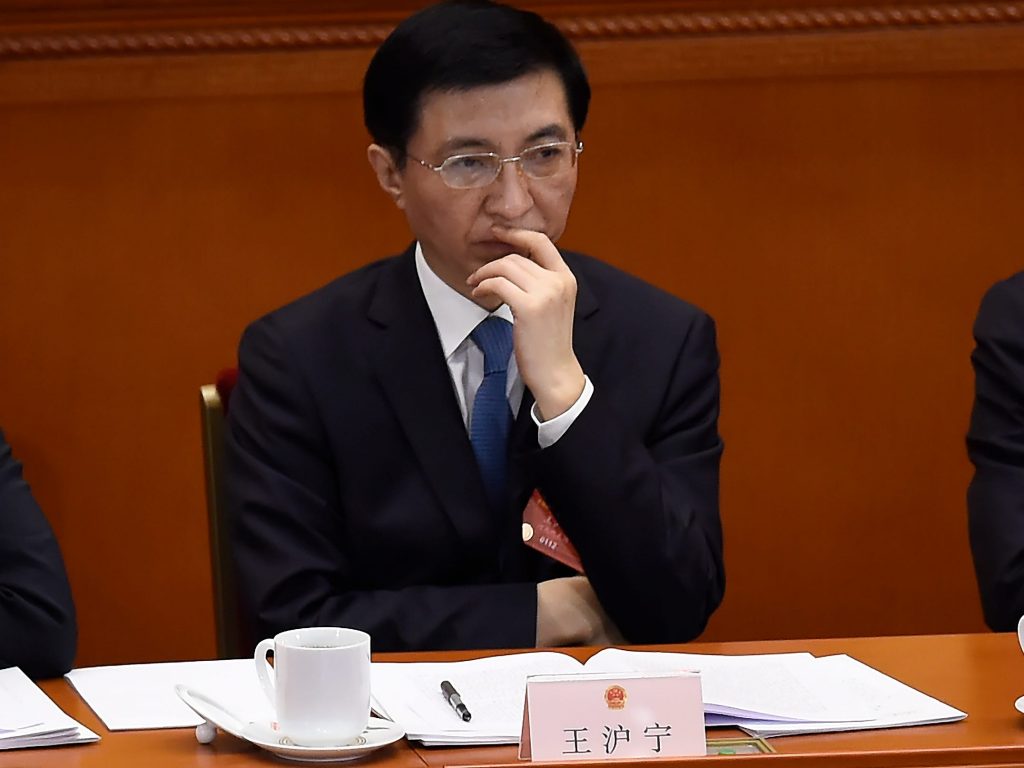
Wang, 66, is the secretary of the Central Secretariat of the CCP. He was an academic at the prestigious Shanghai Fudan University before quitting to pursue politics in 1984. Wang has been described as a shadowy figure, a workaholic, and an insomniac.
He is credited with being the intellectual and ideological mastermind behind Xi's "China Dream," an aspiration for China to become the world's dominant power. He is also the architect of "Xi Jinping Thought," a 14-point policy plan to establish socialism with Chinese characteristics.
Wang is seen as the Kissinger-style strategist behind Xi's Belt and Road Initiative, an aggressive foreign policy and development strategy that seeks to expand China's influence across Asia and beyond.
Ties to Xi: Widely thought to be the most intelligent of all the Politburo Standing Committee Members, Wang has accompanied Xi on many overseas trips. He was also a longtime adviser in the Chinese government, serving under two of Xi's predecessors, Jiang Zemin and Hu Jintao.
"Wang is the ultimate survivor, and three general secretaries have relied on his advice. He will also be 67, thus eligible for another term, if the old rules apply," Fewsmith said. "Xi may want him to hang around, but if Xi needs an extra seat (on the Standing Committee) for a valued friend, Wang may be sacrificed."
Zhao Leji has helmed Xi's anti-corruption push and is responsible for arresting thousands of party officials
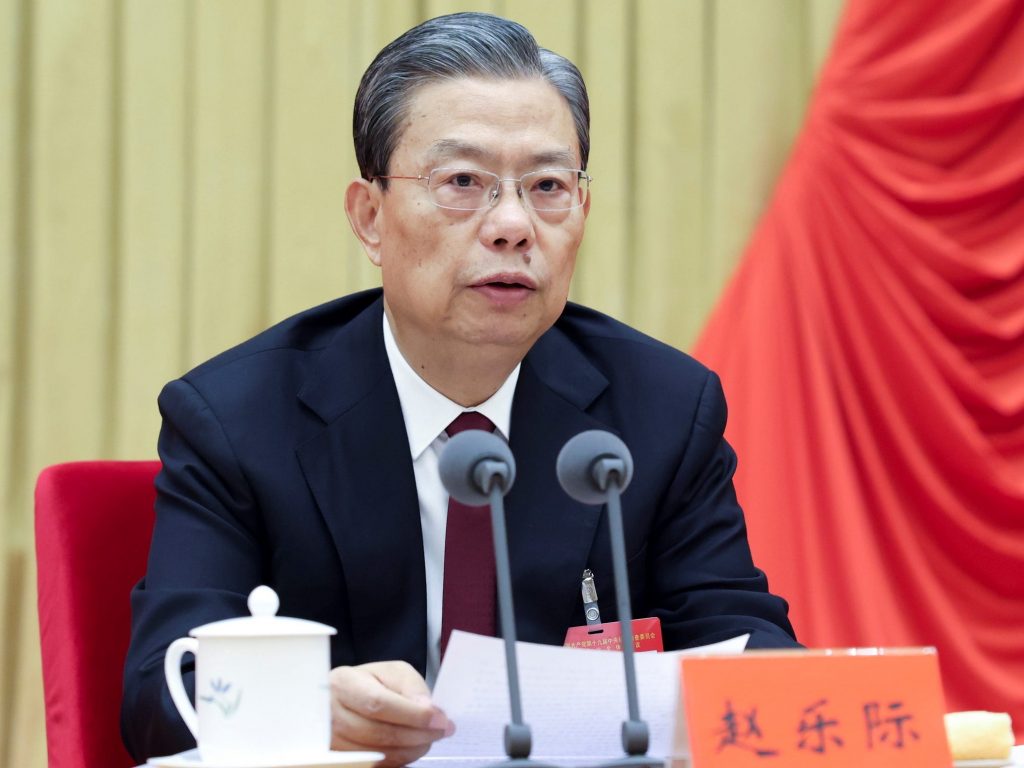
Zhao, 65, is a member of the Standing Committee and the chief of Xi's anti-corruption campaign.
He was heavily involved in Xi's crackdown on "tigers and flies" — including the arrest of thousands of high and low-ranking officials alike — and has been at the helm of Xi's top anti-corruption body since October 2017. Zhao's family consisted of senior communist party officials, and he was able to enroll at the prestigious Peking University ahead of the end of the Cultural Revolution — an indication of his family's clout and influence within the CCP.
Ties to Xi: Like Li Zhanshu, Zhao is known to be a member of the Xi clique. He served as party chief in Shaanxi province — Xi's ancestral home. Zhao is known to have close personal links to Xi's family and benefits from a long-standing friendship between his father and Xi's. He has also proved fiercely loyal to Xi and has helped the Chinese president reinforce an iron grip on full and strict Party governance.
Han Zheng has ties to several past PSC members
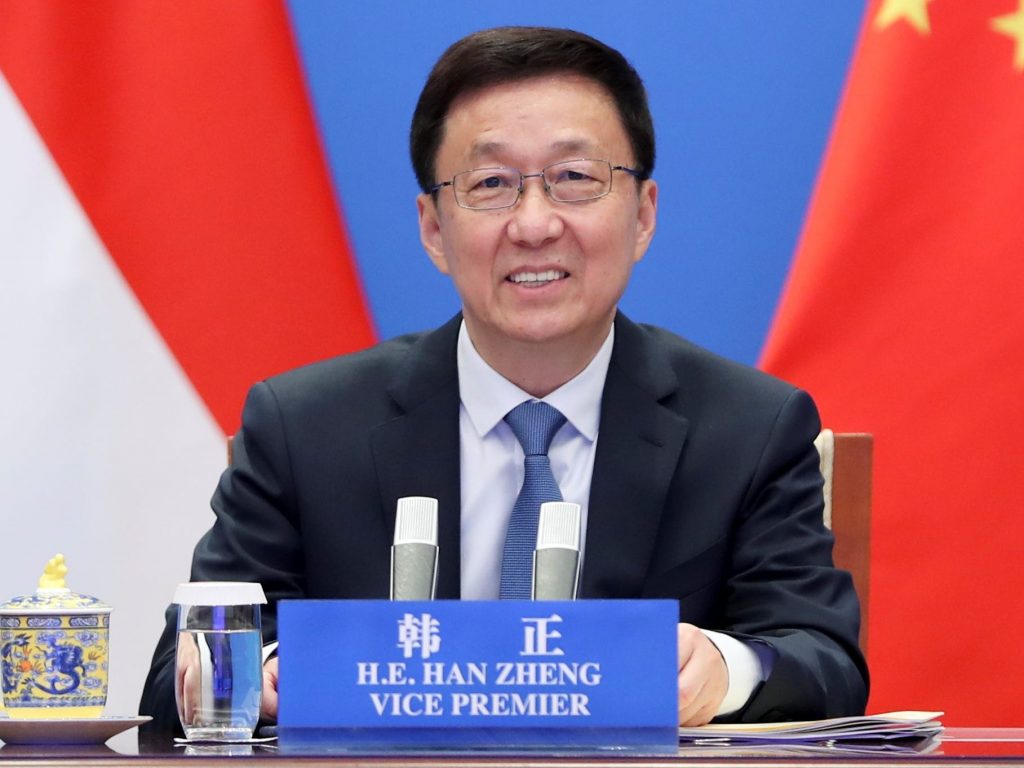
Han Zheng, 67, is the Deputy Party Secretary of the State and the first vice-premier of China. He was a career politician in Shanghai and became the city's youngest mayor at 48. He is considered to be one of the top economic shot-callers and a seasoned technocrat.
Ties to Xi: Han was mentored by Huang Ju, Wu Bangguo, Zhu Rongji, Zeng Qinghong, and Yu Zhengsheng — five of his patrons who all later served on the Politburo Standing Committee. Han later worked as Xi's deputy in Shanghai in 2007, before Xi became a member of the Politburo Standing Committee. Han then earned a Politburo seat himself when Xi became the CCP's general secretary in 2012.
Interestingly, both professors Fewsmith and Shih both expect Han to step down this fall, having passed the retirement age.
"He will retire and it will be an open question whether the Shanghai-line (of power), which started with Jiang Zemin, will continue to produce top-level officials," Shih told Insider.
The outer circle. China's billionaire businessmen have plenty of clout, but they still lack access to Xi

China's rich list comprises individuals who have gained clout by building tech empires and pharmaceutical businesses worth billions. However, China's billionaires operate by different rules, particularly after the fall of Jack Ma. Xi's push toward "common prosperity" — the idea that the wealthy must share their good fortune with the poor — has changed the ways that China's richest operate. Xi vowed in 2021 to "adjust the excessive incomes" of China's crazy-rich and redistribute their wealth in a push for high-income enterprises to "return more to society" in the spirit of "social fairness."
Gone are the days of outspoken billionaires rocking out on stage in flamboyant outfits as Ma did back in 2019. These days, the ultra-rich toe the line and stay under the radar amid intense tech crackdowns, eager to not test Xi's patience and lose it all.
China's richest man, Nongfu Spring Water's Zhong Shanshan, is nicknamed 'Lone Wolf'
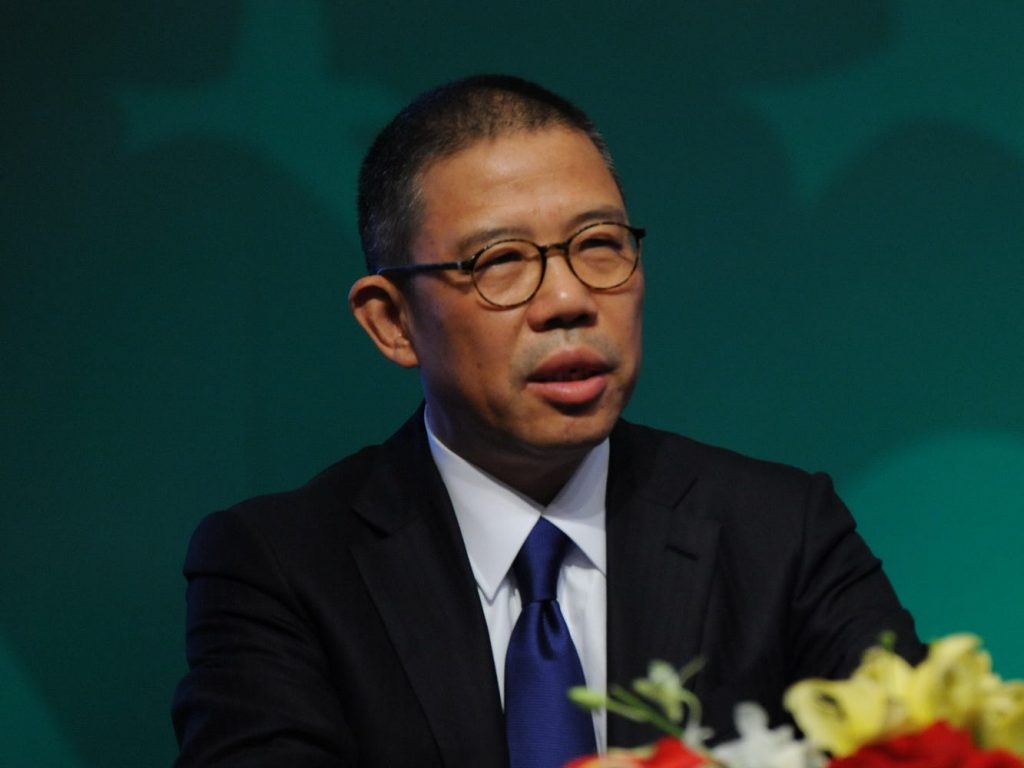
Zhong, 67, is the chairman of Nongfu Spring Water and the owner of Beijing Wantai Biological Pharmacy Enterprise. He also currently holds the title of China's richest man, with an estimated net worth of $66.2 billion. Zhong is known as the "Lone Wolf," and lives a low-key lifestyle, rarely making media appearances.
Influence: Zhong is responsible for establishing the idea within China that bottled water — like what he sells — helps to improve one's health. He also managed to tap into China's demand for COVID-19 tests, fulfilling that need with Wantai's resources.
ByteDance's Zhang Yiming has been accused of being an 'American apologist'
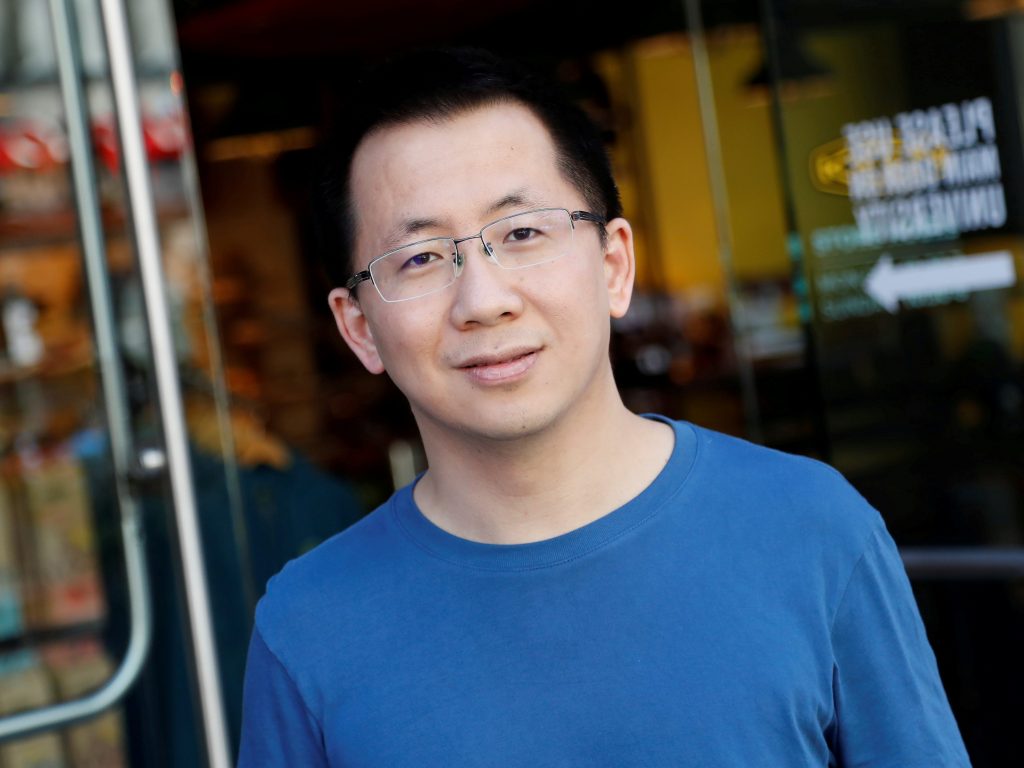
Billionaire Zhang Yiming built his fortune when he co-founded Bytedance, the tech giant behind TikTok and its Chinese version, Douyin. With a net worth of $44.5 billion, Zhang is the second-richest man in China, even after stepping down from his role as CEO of Bytedance in May 2021.
Influence: With 600 million daily active users, Zhang's Douyin is undoubtedly one of the most influential technology apps in China. However, Zhang ran into some trouble in 2020; critics in China called him an "American apologist" when rumors brewed of a possible Microsoft acquisition of TikTok. Zhang's tenure as CEO of Bytedance also included tussles with then-President Donald Trump, who he once said was trying to kill the app. Bytedance currently faces an investigation from a bipartisan group of state attorneys-general, who want to investigate TikTok's influence on young people.
Robin Zeng Yuqun's Contemporary Amperex Technology Company supplies lithium-ion batteries to companies including Tesla, Daimler, and BMW
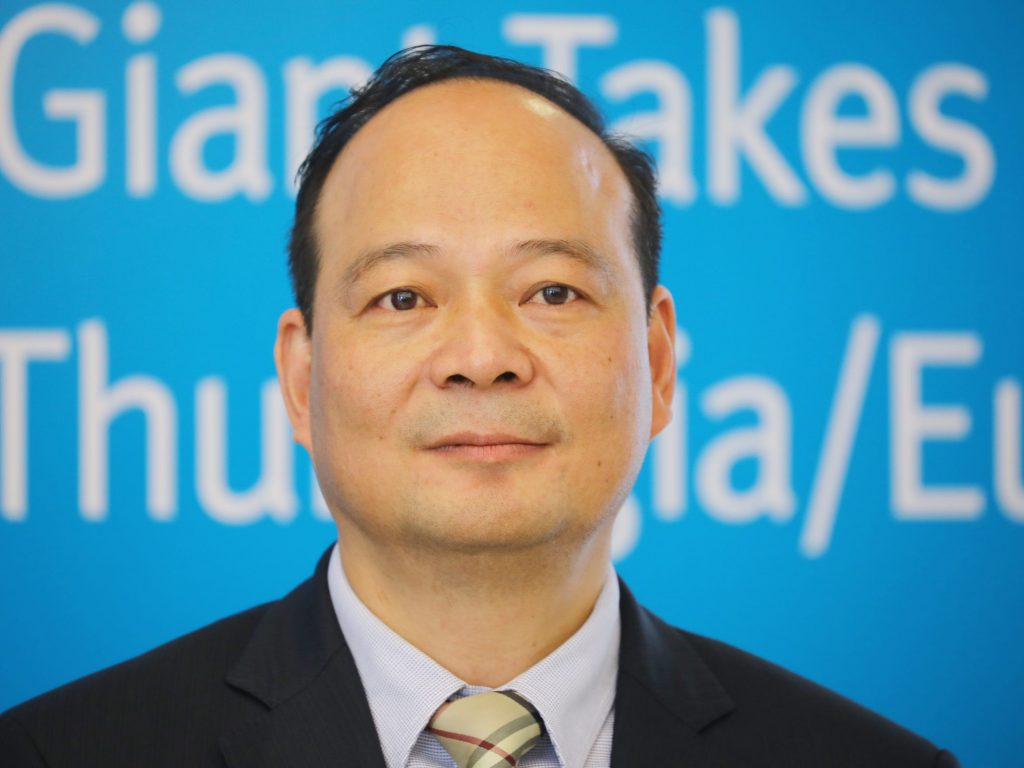
Zeng, 53, is the founder of Contemporary Amperex Technology (CATL), which makes batteries for electric vehicles. A self-made man, Zeng began his career in shipbuilding, then transitioned into building a lithium-ion battery empire. With a net worth of $43.1 billion, Zeng is the third-richest person in China.
Influence: Zeng's influence goes beyond China —CATL supplies components to Tesla and other international car companies like Daimler and BMW. CATL also became China's second-biggest stock by market value in November 2021, behind the Chinese liquor maker Kweichow Moutai Co., and has dominated the market for electric car batteries.
Tencent's Pony Ma Huateng has a net worth of nearly $50 billion
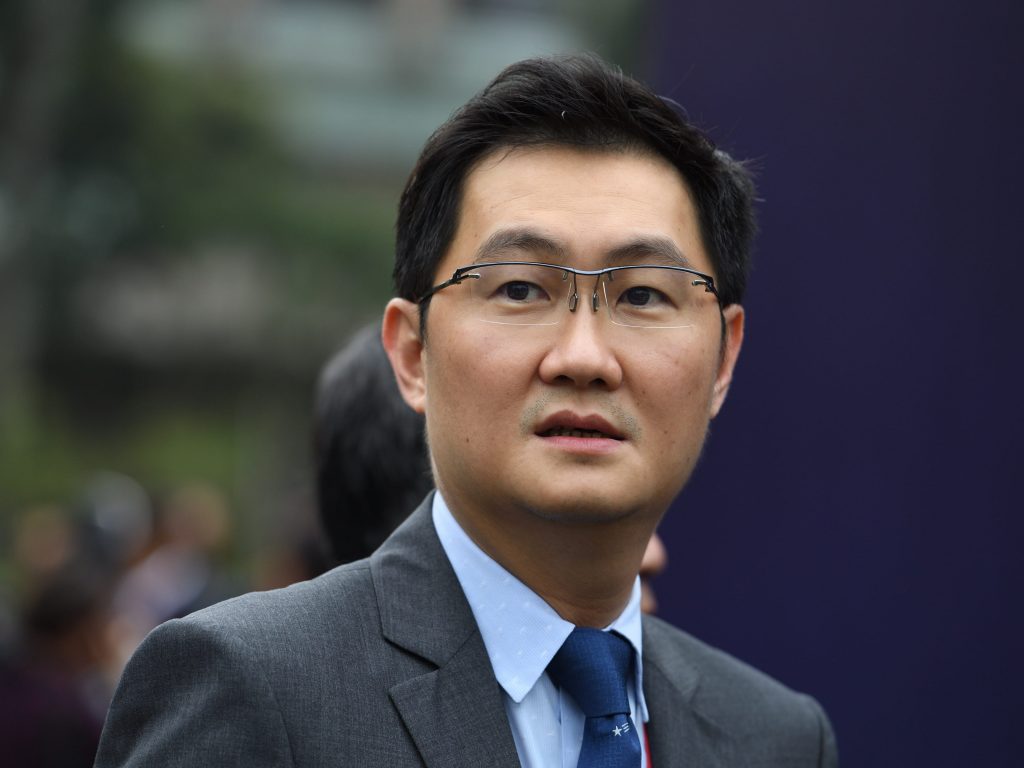
Ma, 50, is the founder and CEO of internet company Tencent, China's biggest internet portal. Tencent also governs a gaming empire and is responsible for WeChat, the Chinese super-app on which people can message their friends, make payments, and call cabs. With a net worth of over $49.1 billion, Ma is the fourth-richest person in China.
Influence: Tencent remains the most influential tech company in the country, but like other billionaires, Ma has had to pivot to promoting the social media giant in a positive and patriotic light. In line with Xi's crackdown on tech companies, Ma said that Tencent would be a "good aide" to the Chinese government, adding that the company knew its place and would not shirk its duty to serve the country. However, this did not spare Tencent from feeling the effects of Xi's crackdown. Ma lost $14 billion of his net worth from December 2020 to August 2021.
Colin Huang Zheng founded the e-commerce platform Pinduoduo, a gamified online marketplace
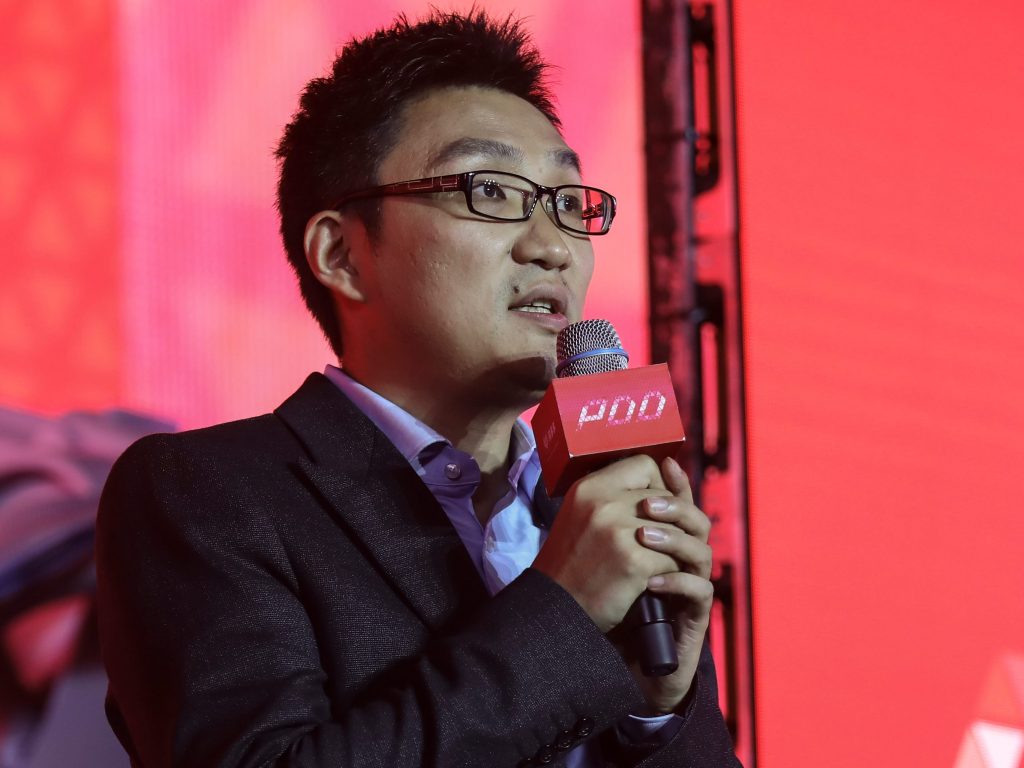
Huang began his career at Google as a software engineer in 2004 but resigned in 2007 to start his own e-commerce and gaming ventures. He founded the e-commerce giant Pinduoduo in 2015. Huang has a net worth of $33.1 billion and is the sixth-richest person in China.
Pinduoduo is a gamified online marketplace that involves letting users buy items at sale prices by playing games. One of the app's functions allows people to "group-buy" things with friends. Pinduoduo makes money by charging sellers a commission to promote items on the app.
Influence: Wealth and riches could well be a form of power in themselves, but Huang appeared to be shying from the limelight when he quit his roles as CEO and chairman of the e-commerce giant he helped build. In a statement in March 2021, Pinduoduo said Huang was stepping down to "pursue research in the food and life sciences, disciplines where breakthroughs could drive the future of China's largest agriculture platform."
While no overt moves were made to force Huang's hand, he appeared to be joining other tech billionaires in a coincidental move toward giving hundreds of millions in donations to charity amid the Chinese government's crackdown on tech tycoons.
